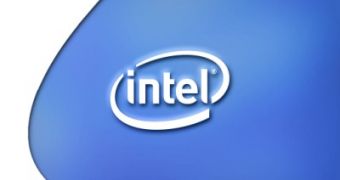The upcoming International Solid-State Circuits Conference is set on taking us by surprise. Rumors are slowly leaking about wonderful innovations in the processor world, from the small, fragile and extremely energy-friendly from Intel, the Silverthorne, to impressive monoliths that suck up more power than two halogen bulbs and dissipate enough heat for a barbecue feast in the open.
The latter processor is the one that caught my eye (you cannot miss a 170-watt behemoth that easy). This is impressive in its technical specifications, with all its 30 MB of L2 cache, but it is also the first processor to be built with a new, powerful and revolutionary technology. Nicknamed the "Tuckwilla", Intel's behemoth features the brand new QuickPath interconnect, a technology that will surely replace the obsolete front side bus that's been around for years.
The International Solid-State Circuits Conference show program reads that Intel will detail upon its upcoming Itanium processor (those who claimed that it's slowly dying will have quite a surprise). The processor is implemented in 8M 65nm CMOS and features huge sizes ( 21.5?32.5 square millimeters). It also comes with four dual-threaded cores, a system interface and 30 MB of L2 cache pool.
"It looks like Tukwila's QPI links are running at 4.8GHz, which is about the same speed as Hypertransport 3. Realistically, Intel will pack quite a bit more bandwidth on - because they are using 4+1 QPI links, compared to the 4 HT3 links that AMD will be using in future MPUs. What's most impressive about Tukwila is the memory bandwidth - it has the same bandwidth as a full 4 socket Opteron system, all in one socket," claims Real World Technologies analyst David Kanter.
The four processor cores will be linked by the QuickPath interconnect, that would allow data peak processor-to-processor bandwidth of 96GB/s, with a peak memory bandwidth of "only" 34GB/s. The QuickPath is formerly known as CSI (common high-speed serial interconnect) and is Intel's response to AMD's Hypertransport 3.0 that can only carry 41.6GB/s in both directions.

 14 DAY TRIAL //
14 DAY TRIAL //